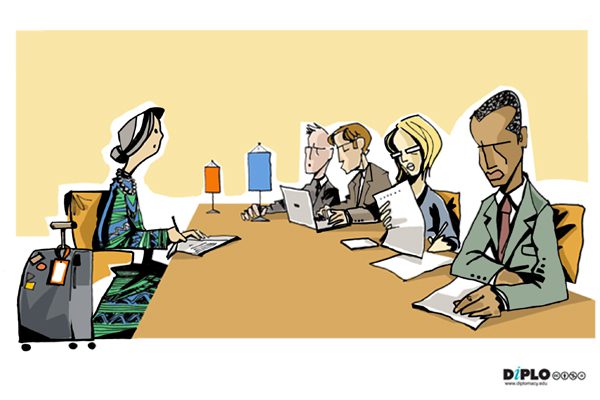
DiploNews – Issue 368 – 1 April 2019
Upcoming study opportunities
Featured online course: Diplomacy of Small States
Diplomatic means can transform the smallness of a state into an asset when promoting national and international interests. This course examines the manner in which small states conduct their diplomacy to pursue their foreign policy objectives, and to manage their participation in the global community of nations. The subject takes two aspects as starting premises: that diplomacy as practiced by small states is a subset of the basic themes and methods of diplomacy in general; and that small states, however defined, are necessary and active partners in the global community of nations.
Join this online course, starting 6 May 2019. Read more and register now, to reserve your place.
May 2019 online diplomacy courses
Starting on 6 May 2019, we offer courses on diplomacy topics, both classic and contemporary:
- Artifical Intelligence: Technology, Governance, and Policy Frameworks [new course]
- Bilateral Diplomacy
- Diplomacy of Small States
- E-Diplomacy
Apply by 1 April (end of day) for Diplo certificate courses. Note that the application deadline will be extended if places remain in the course.
For further information or to apply, click on the titles of the courses listed, or visit our courses webpage. Register now to reserve your place.
Malta scholarships
Thanks to support from the government of Malta, partial scholarships are available for applicants from developing countries to attend upcoming Diplo online courses. These scholarships cover 30%–60% of course fees and can be applied to most online courses in 2019. Browse our course catalogue and contact us at admissions@diplomacy.edu for further information. You can also sign up for our courses mailing list to be informed about upcoming courses.
eCommerce Week 2019: From Digitalization to Development
The 2019 edition of the United Nations Commission on Trade and Development (UNCTAD) eCommerce Week focusses on the theme ‘From Digitalization to Development’. The event takes from 1 to 5 April in Geneva. The GIP Digital Watch observatory will be doing just-in-time reporting from the event. Find out more on the dedicated page.
2nd Western Balkans Digital Summit
The 2nd Western Balkan Digital Summit will be held on 4-5 April 2019, in Belgrade, Serbia. The conference is being organised by the Office of Prime Minister Ana Brnabic; the Office for IT and eGovernment; the General Secretariat; the Ministry of Trade, Tourism, and Telecommunications; and the Chamber of Commerce and Industry of Serbia, and supported by the Regional Cooperation Council. The GIP Digital Watch observatory will be doing just-in-time reporting from the event. Find out more on the dedicated page.
World Summit on the Information Society (WSIS) 2019
The World Summit on the Information Society (WSIS) Forum is a UN multistakeholder platform facilitating the implementation of the sustainable development goals (SDGs). The event will take place from 8 to 12 April in Geneva. The GIP Digital Watch observatory will be doing just-in-time reporting from the event. Find out more on the dedicated page.
New e-book by G.R. Berridge: Diplomacy and Secret Service

What’s been happening in Diplo’s blogosphere
In Discussing state behaviour in cyberspace: What should we expect? Ilona Stadnik discusses the approval by the United Nations General Assembly (UNGA) for the creation of two distinct groups to further explore issues related to responsible state behaviour in cyberspace: an Open-Ended Working Group (OEWG) and a new Group of Governmental Experts (GGE). The two groups were proposed in resolutions put forward by Russia and the USA, respectively. What are their mandates, and what can we expect from these groups? In Internet governance in March 2019 Anrijana Gavrilovic sums up the monthly IG briefing in which Vladimir Radunović and Marília Maciel discussed old concerns and new policy initiatives in the field of cybersecurity, Internet platforms on the radar again, and a renewed focus on the Internet economy, and highlighted some of the events held in March 2019, including ‘Principles for AI: Towards a Humanistic Approach?’, ICANN 64, the OECD Going Digital Summit – from which Geneva Internet Platform (GIP) Digital Watch Observatory’s rapporteurs did just-in-time reporting, and the Group of Governmental Experts on Lethal Autonomous Weapons Systems.



